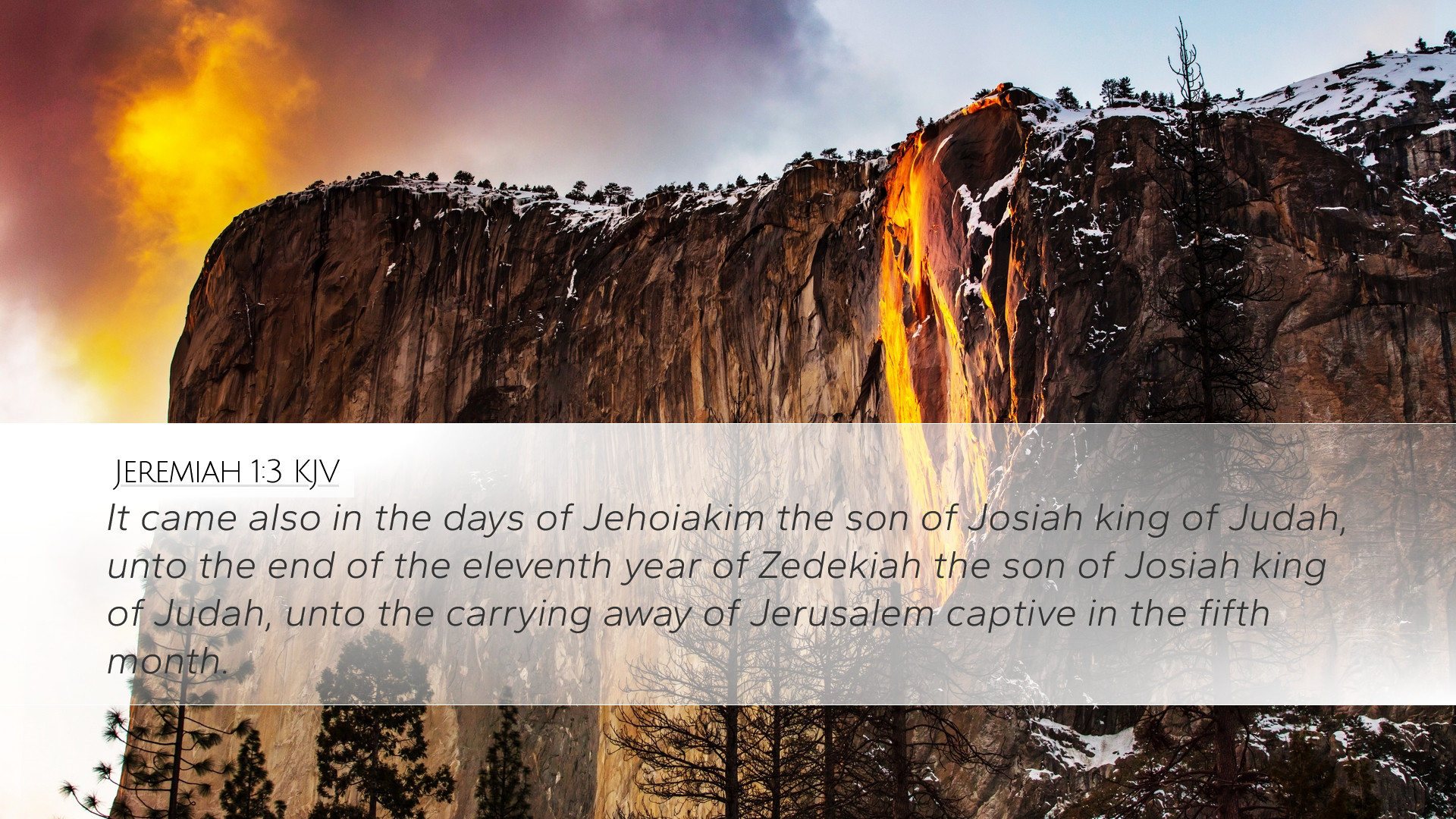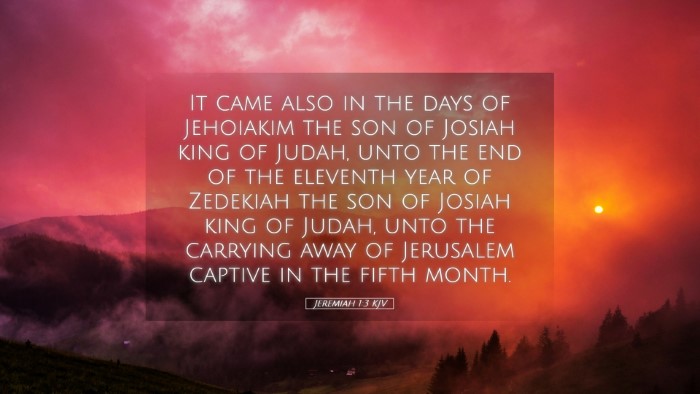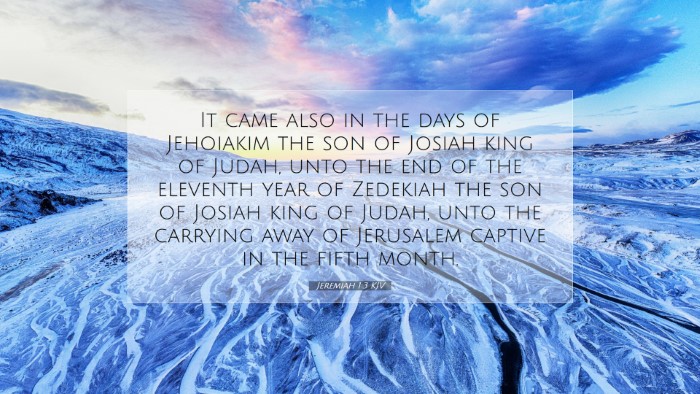Commentary on Jeremiah 1:3
Verse: "And it came to pass in the days of Jehoiakim the son of Josiah king of Judah, and in the tenth month, in the fourth year of his reign, that Nebuchadnezzar king of Babylon came unto all the land of Judah, and Jerusalem was besieged."
Overview of Jeremiah 1:3
This verse serves as a critical historical marker, setting the stage for the prophetic ministry of Jeremiah. The contextual backdrop is significant not only for understanding the time and situation but also for grasping the urgency and gravity of Jeremiah's calling. The prophet’s role was to convey God's message during a tumultuous period for Judah, characterized by political instability and impending disaster.
Historical Context
- Jehoiakim's Reign: Jehoiakim was a king whose rule witnessed significant strife. His reign was marked by a rebellion against the Babylonian Empire and an eventual subjugation of Judah.
- The Babylonian Threat: The invasion by Nebuchadnezzar signified not only a military confrontation but also a looming existential crisis for the people of Judah.
- The Tenth Month: The specific mention of the month implies a precise chronological understanding of events, emphasizing the careful documentation of God’s dealings with His people.
Theological Implications
Jeremiah's prophetic call comprises both the past, present, and future dimensions of Israel's relationship with God. It illustrates the sovereignty of God over nations and reveals His intentions toward His covenant people.
- Divine Sovereignty: As God orchestrates the events leading to Judah's downfall, it becomes evident that these events serve a higher purpose in God's redemptive plan.
- Warning and Judgment: The besieging of Jerusalem symbolizes divine judgment. God's messages through Jeremiah serve as both warnings and invitations to repentance.
- Covenant Faithfulness: The historical narrative exhibits God’s faithfulness to His covenant, even amid human unfaithfulness. He remains engaged with His people, calling them back to righteousness.
Commentary Insights
Matthew Henry's Perspective
Henry emphasizes the significance of the timing in which Jeremiah prophesied. He notes how God often calls His prophets in times of crisis, thereby equipping them with the necessary courage and resolve to deliver His messages. Henry highlights the importance of a faithful witness during turbulent times, revealing that God does not abandon His people but instead raises voices to guide them back to Himself.
Albert Barnes' Interpretation
Barnes acknowledges the specific historical references in this verse and ties them to God's unfolding plan. He observes that the mention of Jehoiakim and Nebuchadnezzar underscores the broader narrative of judgment and exile faced by God’s people. Barnes points out that amid adversity, Jeremiah is called to preach repentance and hope, urging the people to turn back to God to avert impending disaster.
Adam Clarke's Commentary
Clarke provides a detailed examination of the social and political climate of Jeremiah’s time. He notes that the siege of Jerusalem represents the culmination of years of disobedience by the people of Judah. Clarke also emphasizes Jeremiah's role as a watchman—a guardian tasked with delivering God’s warnings effectively. He reflects on the divine compassion in the call to repentance, seeing it as an opportunity offered to restore the people's relationship with God.
Applications for Today
The study of Jeremiah 1:3 holds various applications for modern readers, especially pastors, students, theologians, and scholars:
- Courage in Prophetic Ministry: Like Jeremiah, contemporary believers are called to speak truth and warn against sin, even when it is culturally unpopular.
- Understanding God's Timing: The specificity of the historical context reminds us that God operates within time and space, orchestrating events according to His divine purposes.
- Invitation to Repentance: The lessons learned from Judah’s circumstances remain salient; God's call to turn back from sin is as relevant today as it was then.
- Sovereignty Over Nations: Reflecting on God’s control over nations can instill hope amid global uncertainties and instigate prayer for reconciliation and revival in societies.
Conclusion
Jeremiah 1:3 encapsulates a moment of monumental significance in the history of Judah and provides a framework for understanding divine interaction with humanity. Through the lens of established public domain commentaries, we glean insights not only into the historical implications but also the theological depth of the text. This understanding invites further contemplation and action as we respond to God’s persistent call to repentance and faithfulness.


